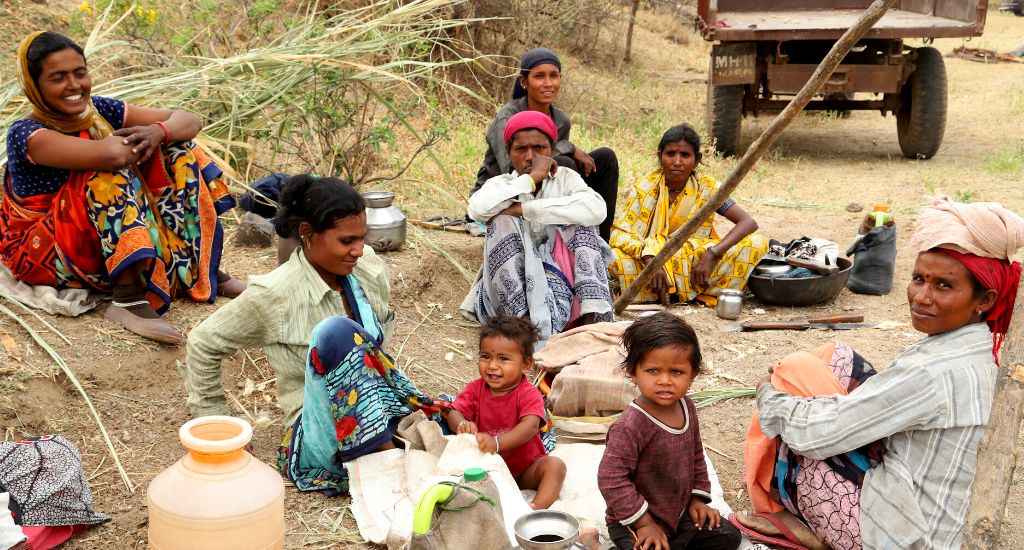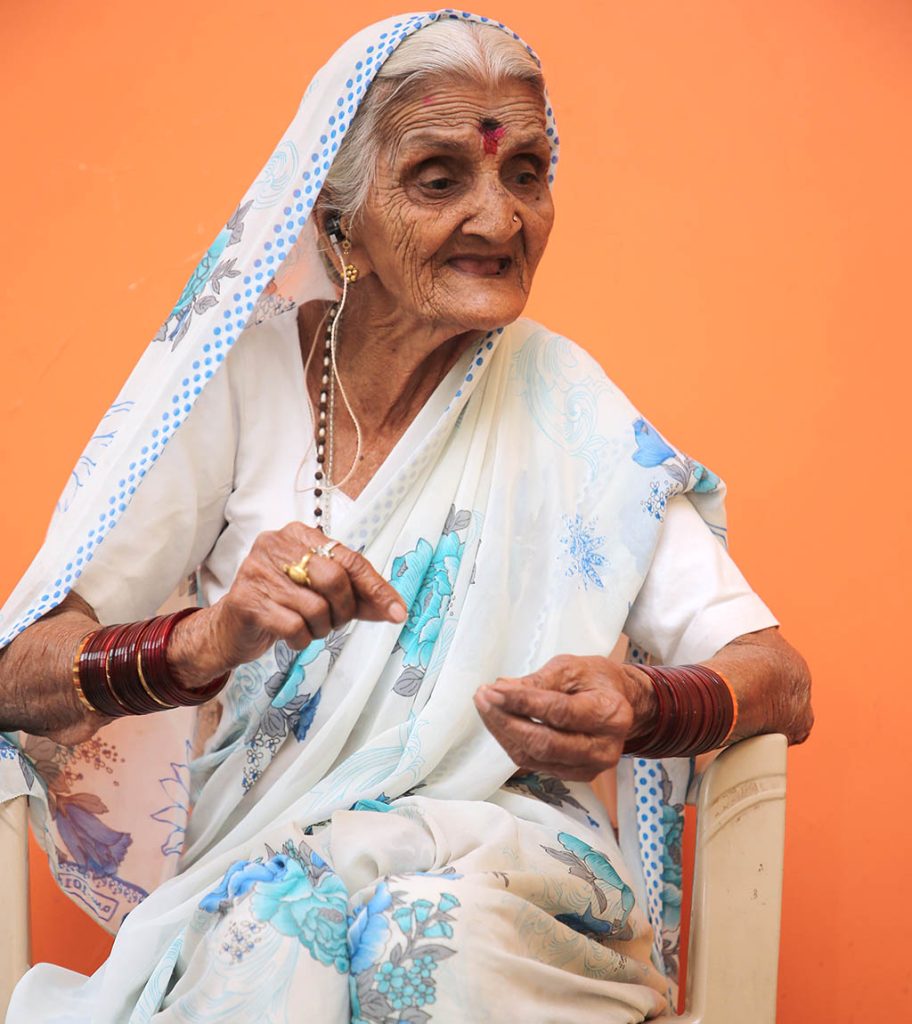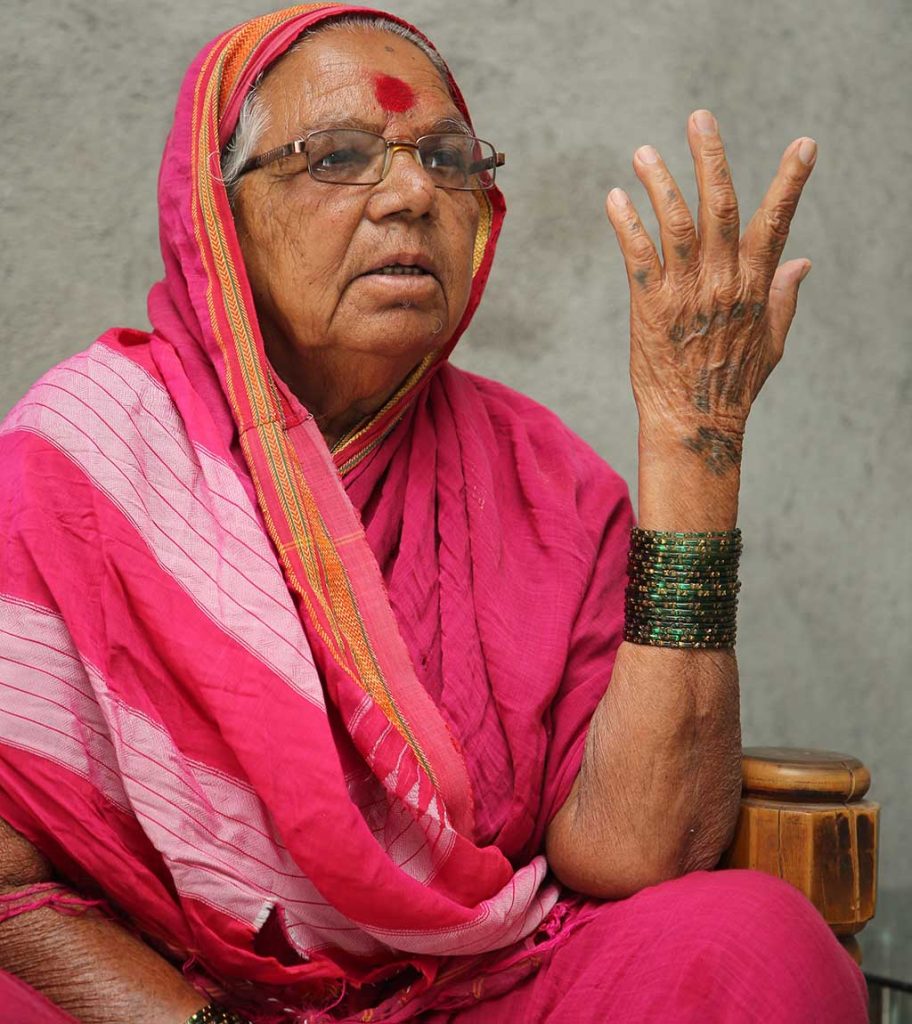
Enterprising women: Stories of inspiring micro-entrepreneurs in Maharashtra
Women who run small businesses and micro-enterprises in a village in Maharashtra are entrepreneurial role models, inspiring others to follow in their footsteps.

Women who run small businesses and micro-enterprises in a village in Maharashtra are entrepreneurial role models, inspiring others to follow in their footsteps.
Suman Gaikwad, Sakhubai Lokhande, Vanita Pise — three women of different ages but from the same dry and dusty village of Maharashtra, Mhaswad, which is around 150 km from the district headquarters of Satara.
Another factor that unites them is that – despite living in a drought-prone region with very few resources – they are industrious micro-entrepreneurs inspiring other women to create their own livelihoods.
Suman Gaikwad is a frail, 80-year-old woman who has not forgotten the times when she took to the streets, demanding work, some 40 years ago.
Sakhubai Lokhande is equally tenacious and determined to succeed – a true matriarch.
Vanita Pise is a younger version of these two women.
Pise began her entrepreneurial journey selling buffalo milk, then became a micro-scale businesswoman and now organises a farmer producer organisation (FPO). She has been able to do this by “Keeping a cube of sugar on your tongue and a lump of ice on your head,” as the village saying goes.

The older women were among those who helped social entrepreneur Chetna Sinha set up a women’s cooperative bank, the Mann Deshi Mahila Sahakari Bank.
“I worked on the employment guarantee scheme of the state government, breaking stones and rocks in the 1980s. This was during a drought. I accompanied those who demanded work, adding my voice to theirs,” Gaikwad recalled.
She had been a seamstress too, but went on to become the chairperson of the Mann Deshi Mahila Sahakari Bank.
Today she prefers to run her kirana store.
Also Read | Agri-entrepreneurship: Inspiring family story in a cup of lemongrass tea
“Till this lockdown, I worked to set up self-help groups, collecting up to Rs 70,000 per month. Now I’m happy reading and visiting the temple. When we were young, all we knew was ‘chool ani mool’,” she said, referring to the traditional role of women in the kitchen and in nurturing children.
“There was no stepping out of our homes. The drought and famine-like conditions in the early 1990s changed that,” she recalled. That was when she became an activist and eventually got into banking.
Lokhande is an adviser to the Mann Deshi Mahila Sahakari Bank. The bank values her business acumen.
“I do business across four districts, providing employment across the region. We have suffered enough, I don’t want the next generation to suffer,” she said. “I have had no formal education, but I can do sums in a trice. It’s this skill which helps me make ropes for goat and sheep herders to tether their animals.”
Her rope weaving business means she travels a fair amount as she buys thread at one place, weaves it in another and sells in a third place.

Her savings amount to Rs 20 lakh, which raises eyebrows.
Her reply is typical.
“I bought at Rs 6-8 per kg and sold at Rs 22 per kg. Why wouldn’t I earn? I’ve earned well, spent on my children’s and grandchildren’s education and built homes for all of them,” she added.
Entrepreneurship may not be a word in Vanita Pise’s vocabulary, but her every action speaks of it. She bought a buffalo to sell its milk and supplement her family’s earnings.
“After that, I wanted to diversify, preferably with a home-based job,” Pise narrated her progress as an entrepreneur.
Her husband faced losses in his poultry business.
“This made me realise that dependence on one sector is not advisable. I had to diversify into a non-agri business,” she said.
Six months after buying the buffalo, she saw a newspaper advertisement inviting people to make paper cups. After a promising start this venture collapsed.
So she began making foil-lined plates for weddings. Then came COVID and there were no weddings since gatherings were banned.
So she began making paper cups for tea and juice.
Her latest venture is Farm2Market, an FPO, which helps farmers get better rates for their produce.
Having established processes for soil testing, laboratory reports and best practices, Pise and her group began to buy produce directly from the farmers.
“We bought the entire produce at the farmgate, a huge relief to the women who would otherwise have to take it to the market to sell,” she said.
As the movement picked up, Pise and her group found more and more farmers wanted to join.
Also Read | Money blooms in India’s ‘flower village’ of Nikamwadi in Maharashtra
“So we widened our scope, both geographically and in the crops we bought,” Pise said, adding, “We took follow-up steps and this led to higher production thus better returns for farmers. We began to make the dal instead of selling the unprocessed lentil, a move welcomed by farmers.”
Pise is exploring futures trading, to ensure farmers get a fair price for the product. She makes sure that women attend workshops on things like crop diversification and soil erosion.

In 2018 the Mann Deshi Kisan Producer Company was formed. The group is now working on drought-resistant crops.
Her next project? Teach women to drive cars.
Pise strongly believes that education by itself is not enough.
“You need to use that education. You need confidence and my business has taught me that,” she noted.
She has passed on that confidence to other women, so now there are banking correspondents who go to women working in the fields, giving a new meaning to the words ‘doorstep banking.’
But the list doesn’t stop there.
In Mhaswad there’s also a woman who manufactures musical instruments using leather, another who provides access to cable television and a family who profitably keeps alive a centuries-old tradition of carpet-weaving.
Also Read | How pearl farms bring money to a parched village in Maharashtra
The talent has always been there.
All these women needed was a little support. Seeing other women micro-entrepreneurs flourish was enough inspiration.
Now many others are following in their footsteps.
The lead image shows women managing day-to-day household work with their children (Photo by Aliasgar Khan)
Gouri Agtey Athale is a journalist based in Pune.